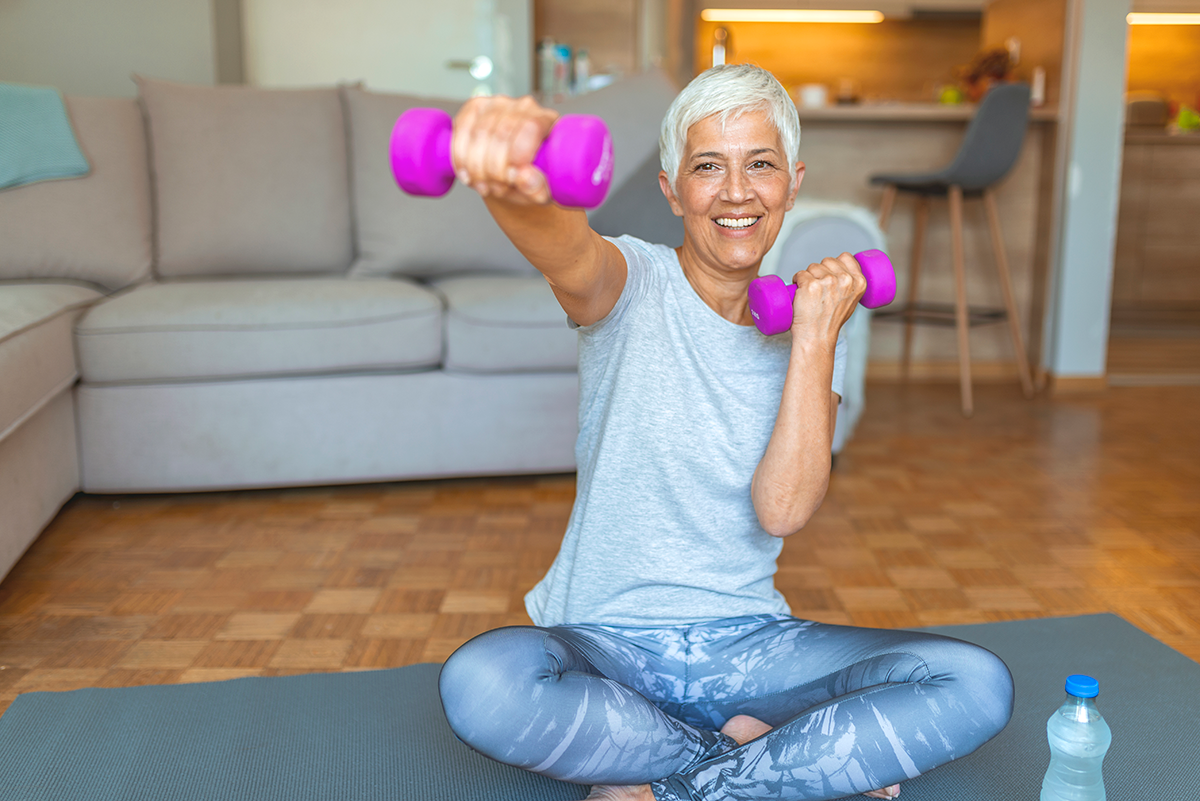My first published article as a medical fitness pro (30+ years ago) was “Muscles…our True BFF (Best Friend Forever) in Life.” Fast forward over 30 years later in a global health pandemic, this is even more critical. Alas, our muscles have not prospered as Netflix and liquor sales.
We all know that muscles exemplify “use it our lose it.“ Fascinating study August 2020:
“Exercise Induces Different Molecular Responses in Trained and Untrained Human Muscle”
Conclusion: “…several key regulatory genes and proteins involved in muscular adaptations to resistance exercise are influenced by previous training history. Although the relevance and mechanistic explanation for these findings need further investigation, they support the view of a molecular muscle memory in response to training.”
⇒ Our “muscle memory” speeds the process by which we regain our former muscular strength and size. This merits the word “awesome”.
What an evolutionary advantage to regain muscle mass, for both physical and mental health. Survival of the fittest in action.
Before the pandemic, studies showed 60% of US adults do not strength train. We are our own worst enemies.
During the COVID pandemic: Working from home, not getting up and going out to work — various factors have made us more sedentary. A study from eMarketer said TV viewing dramatically increased this year, ending a 9-year steady decrease in television viewership. Studies show there’s been a 32% reduction in physical activity this year, and not surprisingly, another poll says 53% of people struggle with mental health issues due to the pandemic.
Sitting truly is the new smoking.
I think gyms were closed more in 2020 than they were open. Many of us love the gym — a real adrenaline rush. Many people are dependant on the gym for exercise, whether it’s to see their trainer, attend a class, discipline, motivation. The fallout: this pandemic has been more of a sit down than a lock down!
If there is ONE thing, COVID has taught us: Adaptation, the ability to change to our environment, is truly paramount to survival.

Exercising and working our muscles is a vital part of preventative health, even more so now. Muscle wasting is a product of aging, too much tush time and many diseases, including COVID.
Pop exercise advice always mentions get 10k steps per day”. And yes, “strength train 2-3 times per week”. Sadly, the perception of strength training is that it must be with heavy barbells and machinery at the gym. No gym, no strength.
May I suggest we encourage muscle mindfulness? Working our muscles is not just for “exercise time”. We can encourage muscle work in many forms, multiple times per day. Just like we eat, use the washroom, have screen time… let’s help people anchor some muscle time to daily activities.
Example: cooking in the kitchen – hang on to the counter and give me 10 squats.
Muscles are a key factor in our metabolic equation. Increasing our muscle mass boosts our resting metabolic rate, burning more calories at rest, not just during exercise. Muscles help balance hormones such as leptin, insulin, estrogens, androgens and growth hormones. These are all imperative for appetite control, cravings, metabolism and body fat distribution and management. At the ripe old age of 30, we start to lose muscle mass (sarcopenia) unless we are mindful to nurture it. And yes, people over 90 can still build muscle mass.
Amongst the many functions of our muscles is utilizing the glucose in our blood, therefore reducing blood glucose levels, irrelevant of the presence of insulin.
Diabetes is an inflammatory disease. Type 2 diabetes causes the body to become less sensitive to insulin, and the insulin resistance leads to inflammation. A vicious cycle.
- 1 in 3 people in the US are pre-diabetic
- Most people are unaware of their diabetes
- 13% of the population has diabetes
- 42% of the population are obese
Diabetes is a gateway disease. It is a red flag for the potential to develop other diseases such as heart disease, cancers, kidney disease, eye issues. As I mentioned before, insulin resistance leads to greater levels of chronic inflammation, which greatly increases the risk of all of our plaguing chronic diseases.
Lowering chronic inflammation has been the focus of my medical fitness journey, research, coaching and published work. Getting people to move “chronic inflammation” into their daily vernacular, permanently affix it to the top of their health wish list has been my professional raison d’être.
My last article here on MFN was all about chronic inflammation, how it is at the root of all of our chronic illnesses, mental & physical: diabetes, many cancers, mental health challenges, heart disease, arthritis, prostate issues, Alzheimer’s, neurodegenerative disorders… and yes, COVID-19. One line here: Please don’t get caught up in pop anti-inflammatory diets causing people to eliminate vital food groups.
The inflammatory response of COVID-19: The severe reactions to the virus happen more in seniors, and those with diabetes or obesity, or other preexisting inflammatory issues. No coincidence. COVID provokes an exaggerated immune response, excessive inflammation and inflammatory products called cytokines – the infamous cytokine storm. Exercise is a crucial factor in controlling inflammation – moderate cardio (NOT long high-intensity cardio, which actually can increase chronic inflammation) and preserving muscle.

So just how important is it for us to encourage our clients to build muscle? Obviously, it is HUGE, and unfortunately, most people do not focus on muscle work. It is our job as MedFit pros, friends and family, to demonstrate how to creatively and seamlessly incorporate muscle mania into their daily lives — yoga, Pilates, resistance bands, dancing…
The COVID pandemic is going to have far-reaching complications for many years to come. Adaptation is key. Integrating muscle work throughout the day along with other activity bodes well for lowering our levels of inflammation — helping to pandemic proof our bodies. Don’t just depend on a vaccine, we could have a new normal for a while. Preventative health is more important now than ever. Our muscles are truly our BFF.
Shira Litwack has been in chronic care management and prevention for 30 years, specializing in lifestyle habits including holistic nutrition, medical fitness and oxidative stress reduction. She is frequently called upon by the media, has her own podcast bringing current research to the public. She has created and provided oxidative stress assessments, to help clients identify potential health risks. From these, she provides guidance to lower inflammation. Shira is now a product specialist with a major COVID-19 test kit supplier, working with epidemiologists educating people on COVID testing, and setting up and designing protocol for COVID testing clinics
